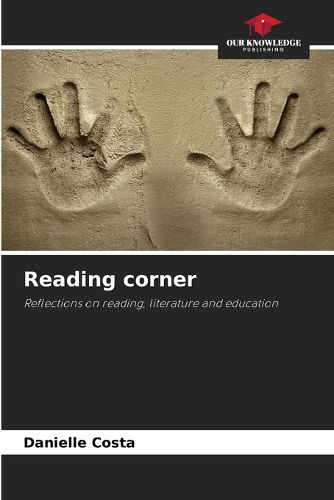Readings Newsletter
Become a Readings Member to make your shopping experience even easier.
Sign in or sign up for free!
You’re not far away from qualifying for FREE standard shipping within Australia
You’ve qualified for FREE standard shipping within Australia
The cart is loading…






This book is part of the theme of reading and education, investigating the motivations and functionality of the reading corner, a mechanism for promoting reading for young children that is widespread in the pedagogical environment. It is specifically interested in investigating, within the scope of academic and school literature, how the conceptual and pedagogical bases of reading and literature for children that underpin the understanding of the reading corner are established and, from this, examine the practical and theoretical implications that stem from this conception. To this end, it is essential to investigate how literature contributes to the formation of subjectivity in childhood, its contrasts with cultural heritage, the values that are established as choice and taste and the role of the adult in the child's formation process. Literature, as an expression of art, is a medium whose cognitive effort can provide the formation of the subject in the sense of making them aware of life, without the concealments that come from the often naive perception of the adult about the child. This book certainly deconstructs the trivialized perception of a reading corner.
$9.00 standard shipping within Australia
FREE standard shipping within Australia for orders over $100.00
Express & International shipping calculated at checkout
This book is part of the theme of reading and education, investigating the motivations and functionality of the reading corner, a mechanism for promoting reading for young children that is widespread in the pedagogical environment. It is specifically interested in investigating, within the scope of academic and school literature, how the conceptual and pedagogical bases of reading and literature for children that underpin the understanding of the reading corner are established and, from this, examine the practical and theoretical implications that stem from this conception. To this end, it is essential to investigate how literature contributes to the formation of subjectivity in childhood, its contrasts with cultural heritage, the values that are established as choice and taste and the role of the adult in the child's formation process. Literature, as an expression of art, is a medium whose cognitive effort can provide the formation of the subject in the sense of making them aware of life, without the concealments that come from the often naive perception of the adult about the child. This book certainly deconstructs the trivialized perception of a reading corner.